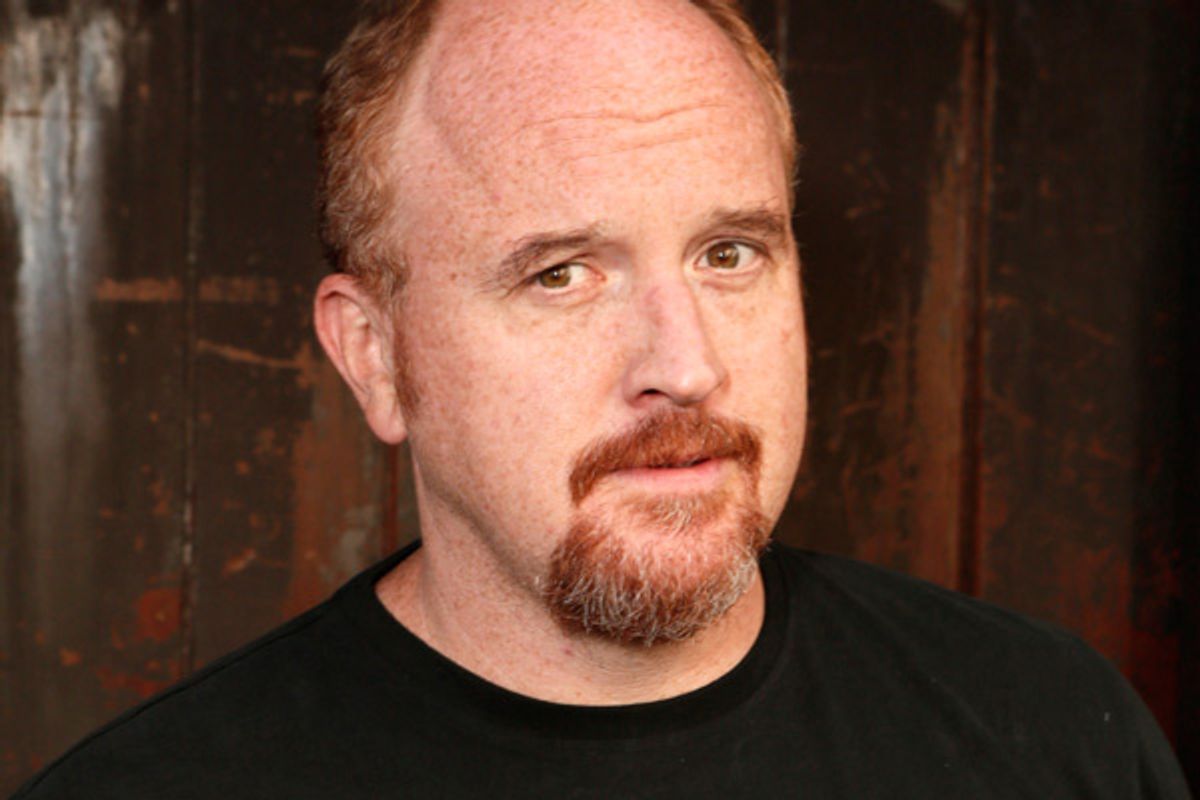The Washington Post ran an editorial this weekend that uses a Louis C.K. joke to come to the defense of Stacey Dean Rambold, the 49-year-old high school teacher who will serve a whopping 30 days in prison for the rape of a 14-year-old student.
Writer Betsy Karasik argues that the "utter hysteria with which society responds to these situations" ("these situations" being the rape of high school students) has "consequences," which, she suggests, can be neatly summarized by a Louis C.K. bit about child molestation.
"Why do kids disappear sometimes?," wonders Louis C.K. in the aforementioned bit. "I think it's because somebody took them and had sex with them. And once you have sex with a kid, you have to toss them. Because people hate folks who have sex with kids, more than pretty much anything... So, here's the thing, if you have sex with a kid, you have to chuck them out because if the kid tells anybody, you're screwed. So I can't help but thinking that if we took down a few notches the hatred for kids-having-sex-people, at least you get the kid back."
After grounding her case for the acceptability of the sexual assault of minors in the musings of a standup comedian, Karasik goes on to suggest that most sex between teachers and students is consensual and part of a "nuanced continuum of sexual interactions." Ignoring completely the implicit power imbalance created by a teacher's discretionary authority over a student, Karasik says that, "Throughout high school, college and law school, I knew students who had sexual relations with teachers. To the best of my knowledge, these situations were all consensual in every honest meaning of the word, even if society would like to embrace the fantasy that a high school student can’t consent to sex."
Karasik may say that her position on statutory rape shouldn't be interpreted as a defense of Judge Todd Baugh's comment that Rambold's victim was "as much in control of the situation" as her rapist, but by erasing these crucial power dynamics from her read on the case (and sex between adults and minors more broadly), she effectively argues the same thing. Rambold didn't rape his 14-year-old student because it wasn't a "forcible beat-up rape," Baugh recently remarked. Karasik seems to share this opinion.
Further elaborating on this idea that it is somehow prudishness about teenage sexuality, not a desire to see criminal sexual acts prosecuted, that is fueling outrage over the Rambold case, Karasik remarks, "I’ve been a 14-year-old girl, and so have all of my female friends. When it comes to having sex on the brain, teenage boys got nothin’ on us. When I was growing up in the 1960s and ’70s, the sexual boundaries between teachers and students were much fuzzier."
Finally, Karasik argues that, "If religious leaders and heads of state can’t keep their pants on with all they have to lose why does society expect that members of other professions can be coerced into meeting this standard?" And by "this standard," Karasik means "not raping people."
Try as she might to cloak her rape apology in the language of sexual autonomy and hip cultural references, Karasik's piece remains nothing but a troubling oversimplification of statutory rape and a cruel exploitation of a teenager's sexual assault and subsequent suicide.

Shares